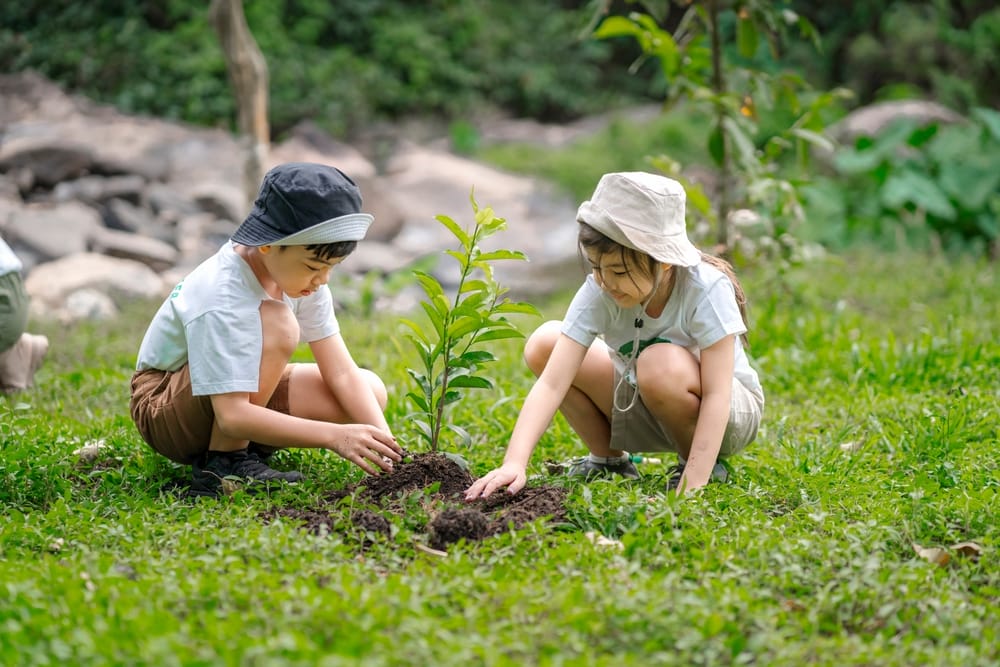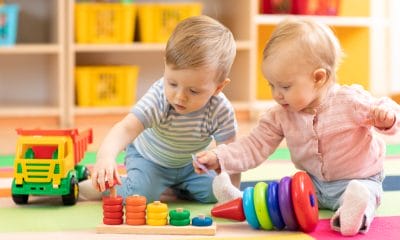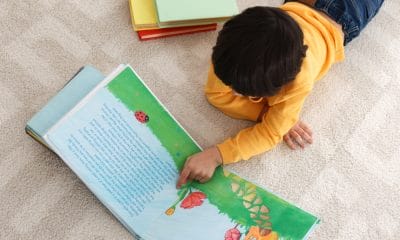Parenting
Guiding Children To Develop Environmental Consciousness
The current era presents a unique opportunity to instill in our children the importance of caring for the environment. Regardless of political perspectives, our world has undergone significant transformations in the past century, with more changes on the horizon. While the future remains uncertain, we can play our part in lessening our generation’s impact and serving as role models for our offspring.
Children possess a natural affinity for the outdoors—be it nature, flora, fauna, space, water bodies, waste management trucks, or even soil. Nurturing their love for the planet is as simple as staying committed to sustainable habits yourself and enjoying quality time with your child in the process.
Although the efforts listed below may appear modest, remember that your aim is to inspire your child. Through small gestures, you can make a positive impact within your community, enlightening your child about how their actions influence the planet. Most significantly, your child will develop a deep appreciation for the Earth and its myriad wonders. Continue reading for five simple and feasible methods to raise eco-conscious kids.
Embrace the Principles of Reduce, Reuse, Recycle
If waste reduction isn’t already a habit in your household, commencing this practice is the simplest way to enhance your home’s eco-friendliness—and it’s a step you can take today. Even a two-year-old can grasp the distinctions between recycling, waste disposal, and composting, with your guidance. While segregating trash may seem tedious, especially for adults, it’s crucial to be mindful of how you communicate and approach these activities. Recycling significantly benefits our planet, but concepts like landfill capacity and energy economics might not captivate your child’s interest.
To instill a love for the environment in your little one, infuse an element of adventure and generosity. This is where creativity plays a pivotal role. For instance, involve your toddler in decluttering and sharing their preloved toys, books, and garments with other children in your vicinity, relatives, or donation centers. Additionally, transform those sizable Amazon cardboard boxes into makeshift rockets, race cars, or treehouses before recycling them.
For older children, financial incentives and friendly challenges serve as effective motivators for waste reduction. Allow your child to keep the proceeds from recycling cans and bottles, or set up a game to challenge them to a week without using electricity during certain hours. While these activities may seem trivial, they link waste reduction with the joy of positive reinforcement, reinforcing the concept. Furthermore, children possess an incredible gift for thinking creatively, which might even teach you something new.
Inspire Wonder
Children possess an innate fascination with science and the natural world, craving to comprehend the mechanisms and reasons behind phenomena. In their early years, they revel in the sound of rain tapping on their windows and delight in things that adults may overlook: earthworms, squirrels, insects, falling foliage, and pine cones.
As they mature, their thirst for knowledge expands to dinosaurs, space exploration, marine life, as well as activities like cycling, tree-climbing, and swimming. While most parents endeavor to nurture their child’s interests, it’s easy to overlook the importance of stimulating their imagination to match their enthusiasm.
The world offers boundless mysteries waiting to be discovered. Engaging in outdoor pursuits such as camping, hiking, or bird-watching not only captivates your child but also nurtures a profound appreciation for the Earth’s beauty. The more time spent amidst nature’s wonders, the more inclined your child will be towards embracing environmental stewardship. For example, visiting national parks instills a sense of ownership and promotes a desire to safeguard these spaces in the future.
Discussing Food Choices
Traditionally, discussions on environmental responsibility seldom extend to dietary habits. However, issues like food wastage and irresponsible packaging practices are significant environmental concerns in our society, yet they are relatively simple to rectify and avoid. While parents can implement straightforward changes (e.g., reducing single-use packaging, especially at home), teaching children to make responsible food choices can pose a challenge.
Embark on gardening adventures. Regardless of your gardening expertise or yard space, growing any form of produce or herbs offers your child insights into food origins and its value. Encourage your child to explore new vegetables and fruits with you, accompany them to farmer’s markets to identify seasonal produce, and have conversations about the constituents of different foods.
Pose inquisitive queries to your child. Where does cheese originate? Do bananas grow locally? Why do tomatoes taste different in various seasons? By doing so, you lay the foundation for fostering healthier, more adventurous eating habits and instill a mindset that’s mindful of sustainability. Through these practices, your child gains a potent tool against food and energy wastage: creativity.
Developing sustainable eating and farming practices starts with food awareness and experimentation. The better acquainted your child becomes with food production, sourcing, flavors, and nutritional benefits, the more likely they are to make informed dietary decisions—and positively impact the planet—in their adult years.
Reconsidering modes of transportation
While cars (and minivans) are convenient, we can collectively make an effort to diminish their usage. Demonstrate to your child that walking, biking, or scootering to the market and carting groceries home in a backpack can be both normal and enjoyable. Teach them how to utilize public transportation in a safe and efficient manner. Opt for trains for trips downtown or ferries for summer getaways. Alternatively, consider carpooling with neighbors or friends when you feel at ease doing so. Every small action makes a difference, and reducing our dependence on vehicles benefits the environment and air quality. Plus, it saves you money on gas!
Valuing fresh water as a precious asset
Water is undeniably the most critical resource on our planet, and its significance will only increase as our children grow up. While we are familiar with simple water conservation practices at home, it’s easy in our society to overlook the privilege of having seemingly unlimited access to fresh water directly from our taps.
Cultivating flowers or maintaining plants in your household is an excellent approach to understand the essential role of water as sustenance and how our ecosystem responds to water scarcity. Allow your child, if they are old enough, to care for their own plant. (Top tip: utilize non-soapy bathwater to hydrate plants.)
For older and inquisitive children, take a stroll around your neighborhood and count the number of sewers and drains. During rainfall, observe the water’s journey from the sky to the gutters, onto the streets, into our lawns, trees, and plants, and finally into the drainage system. Familiarizing your child with water systems fosters a lifelong commitment to water-saving practices.
Remember, water conservation, like most eco-friendly behaviors, relies heavily on setting a positive example. Lead by demonstrating good habits in your household so that your child can adopt your practices and feel empowered as stewards of our planet.

















